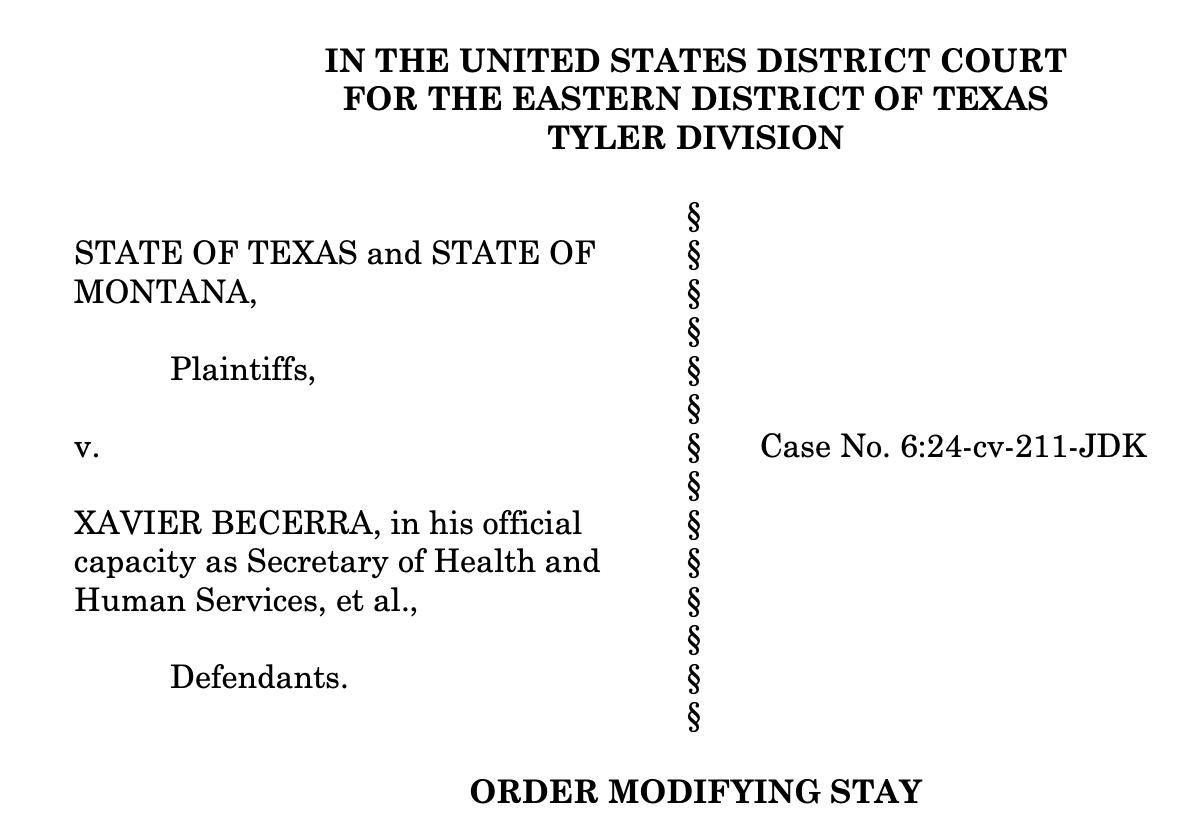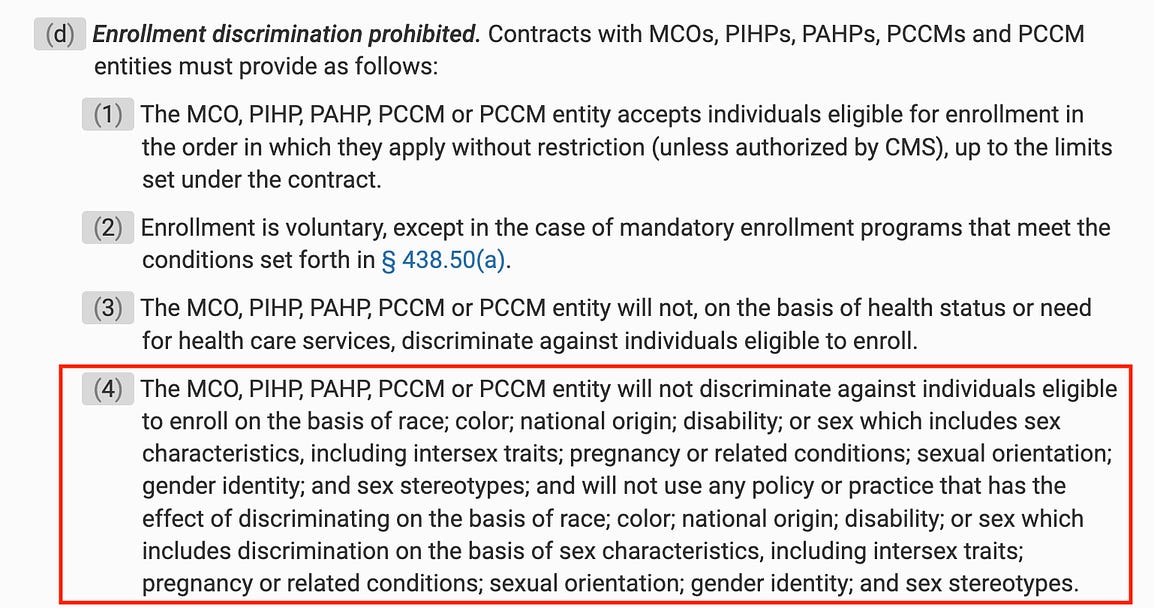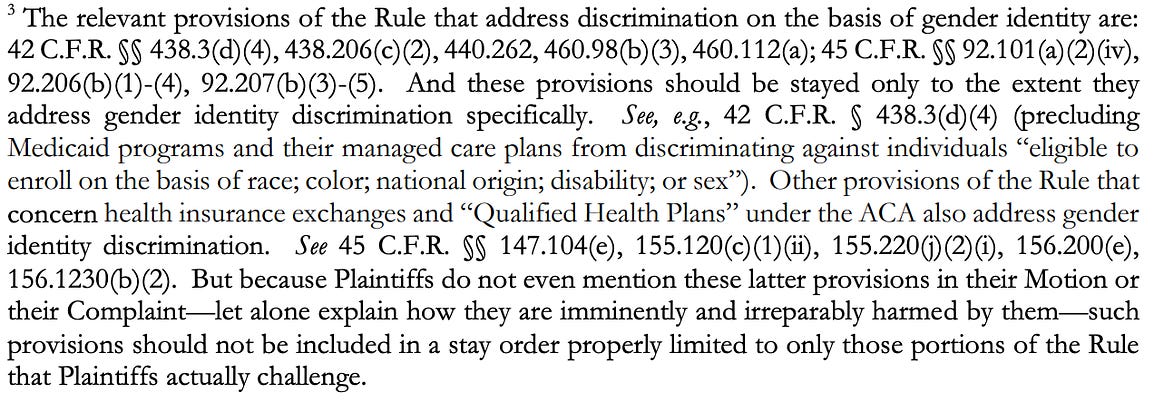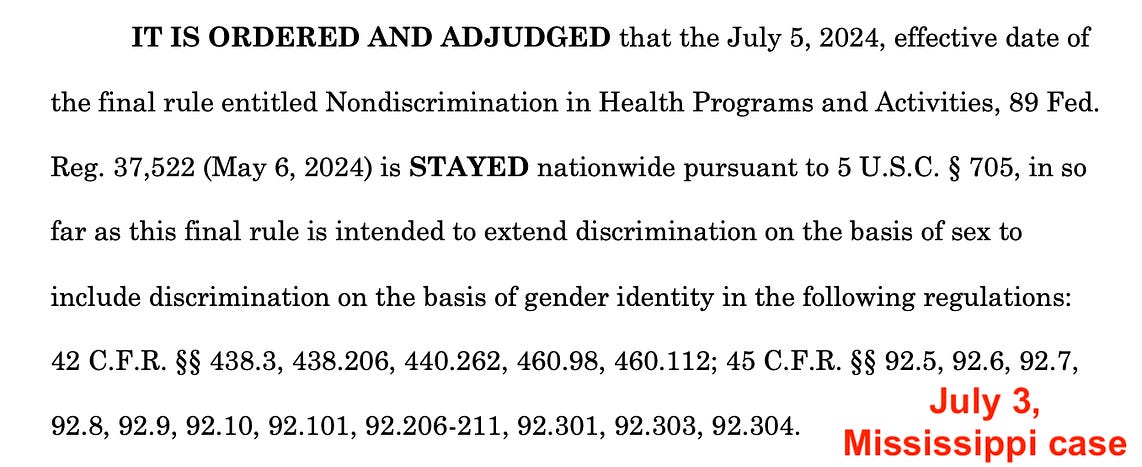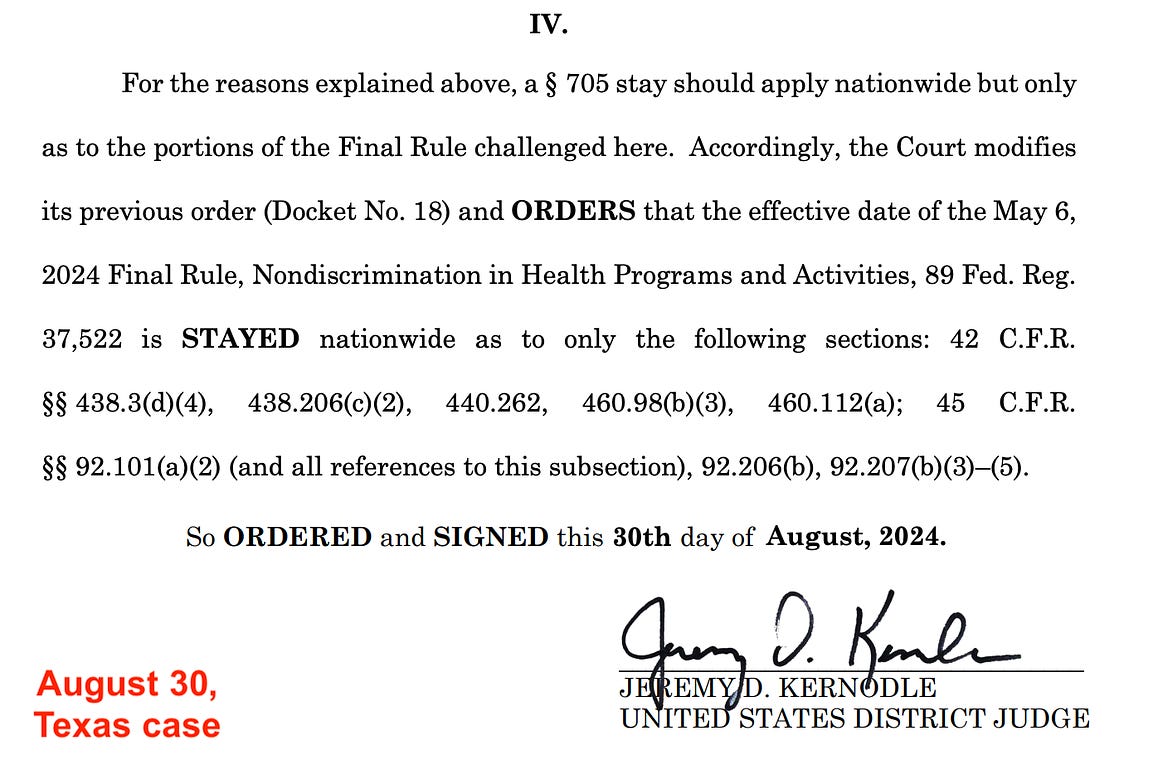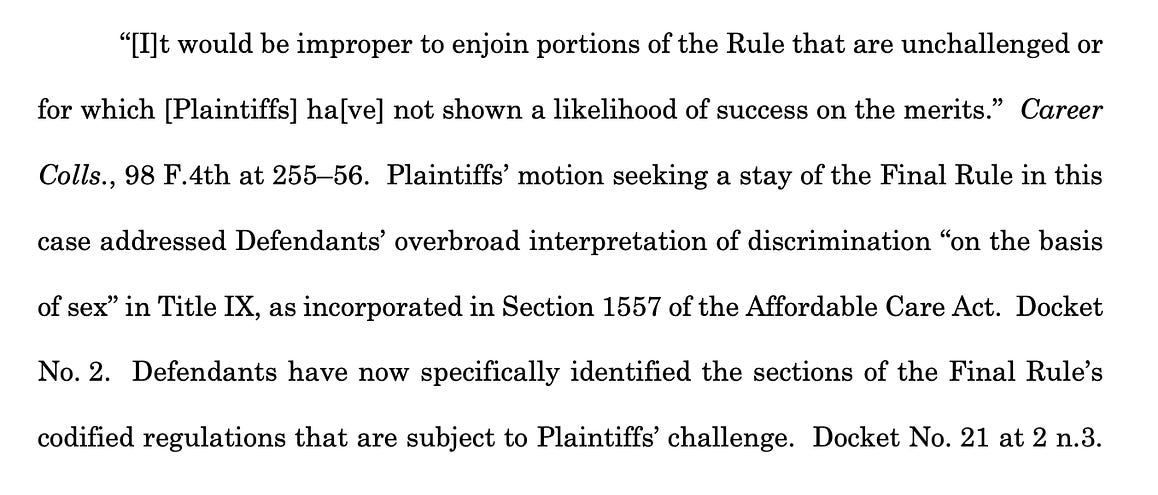Thank you for being one of more than 36,000 people supporting Law Dork with a free subscription! I am so grateful to everyone for reading, subscribing, and sharing Law Dork. That said, my independent legal journalism does cost money to produce. Please consider a paid subscription, as little as $6 a month, to Law Dork today. If you do that, you’ll receive bonus features available only to paid subscribers — and support this essential reporting. I know that not everyone can afford it or prioritize a paid subscription, and, if that’s you, I am so glad you are here! Thanks, Chris Federal judge in Texas expands nationwide limits on HHS healthcare nondiscrimination ruleFriday's order comes nearly two months after the rule went into effect — and as the Justice Department announced its appeals in two other challenges to the rule.A federal judge in Texas issued a revised order on Friday significantly increasing the nationwide limits placed on the Department of Health and Human Services in implementing its Affordable Care Act healthcare nondiscrimination rule. A few preliminary orders had previously been issued in three different cases, including the Texas case, blocking aspects of the Section 1557 rule — largely challenged due to its transgender protections — before it went into effect on July 5. Friday’s order, issued nearly two months after the rule went into effect, expanded what aspects of the rule are blocked nationwide. The Justice Department announced earlier Friday that it would be appealing the orders in the two other challenges, and it is almost certain to appeal the order in the Texas case as well. The ruling issued in one of those other cases had already limited the department from implementing the gender identity protections included in several provisions of the rule nationwide. That itself was a troubling ruling by a federal judge in Mississippi that allowed 15 states to block a federal rule nationwide — something discussed in prior Law Dork coverage of the challenges. Friday’s order from U.S. District Judge Jeremy Kernodle, however, went much further — blocking enforcement of several of those entire provisions nationwide, without the gender identity-related limitation, in a lawsuit brought by just two states. As such, for example, the provision highlighted below is now blocked in full: Under the order issued in early July in the Mississippi-based challenge, in contrast, the gender identity protections in that provision were blocked but the rest of the provision was allowed to go into effect. What happened?The order from Kernodle, a Trump appointee, came in a case brought in the Eastern District of Texas by the states of Texas and Montana. In his early July order in that case, Kernodle had blocked the entire rule — but only in Texas and Montana. In response to that, Texas and Montana sought “clarification” of the very clear order, asking for Kernodle, instead to block the entire rule nationwide. The Justice Department, meanwhile, asked Kernodle to “reconsider” the scope of the injunction because it blocked enforcement of provisions that were not even challenged. In DOJ’s request, the lawyers noted that — even accepting Kernodle’s ruling — the “provisions should be stayed only to the extent they address gender identity discrimination specifically.” An example for how to do that had come in the Mississippi-based case. There, U.S. District Judge Louis Guirola Jr., a George W. Bush appointee, “stayed” the rule nationwide to the extent it “is intended to extend discrimination on the basis of sex to include discrimination on the basis of gender identity” in the relevant provisions: On July 5 then, when the rule went into effect, it had those limits nationwide. Now, almost two months after the rule went into effect, Kernodle issued an order granting the Texas and Montana request to extend the stay of the rule nationwide and, in claiming to limit the scope of the stay to “the portions of the Final Rule challenged here,” actually expanding the limits placed on HHS in implementing the rule by issuing a similar order to the one issued by Guirola but without the gender identity-related limitation included in Guirola’s order: In a sign that this could, potentially, just be an error that could be corrected, Kernodle had cited to the DOJ footnote that I reproduced above in explaining the limits that he was placing on the scope of the stay: Perhaps DOJ will seek clarification of Friday’s order, and we can try this again. Appeals are comingRegardless, Kernodle’s subsequent denial of DOJ’s unopposed request to extend the deadline for its appeal means that DOJ is almost certain to file its notice of appeal by Sept. 3 — something, as noted above, that it did in the other two challenges earlier Friday. Both the Texas-based and Mississippi-based challenge would be heard by the U.S. Court of Appeals for the Fifth Circuit and the third challenge, out of Florida, will be heard by the U.S. Court of Appeals for the Eleventh Circuit. The Fifth Circuit is an extremely conservative appeals court and the Eleventh Circuit has ruled against transgender claims repeatedly in recent years (and weeks). Neither, in short, is where you would choose to go to defend transgender legal protections. You’re a free subscriber to Law Dork, with Chris Geidner. To further support this independent legal journalism, please consider becoming a paying subscriber. |

